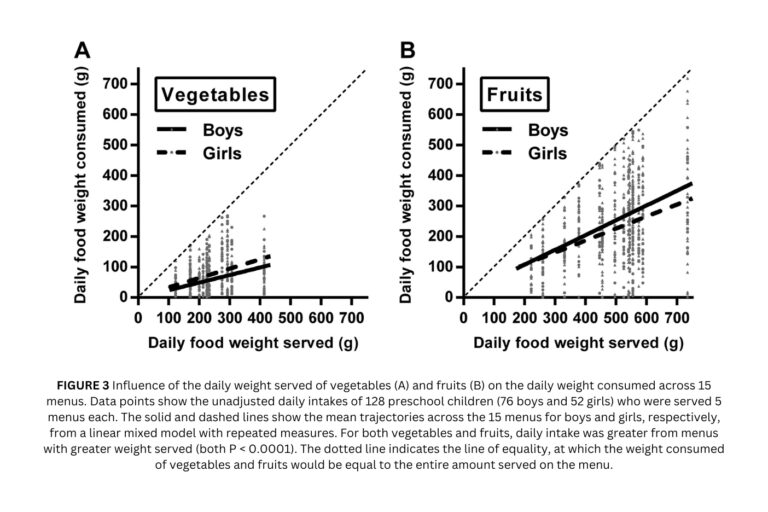Childhood overweight and obesity pose a widespread health threat. Many children attend child care that provides them with most of the foods they eat each day. However, it is unclear to what extent programs designed to provide healthy diets are successful in meeting children’s nutritional needs while controlling energy intake at the necessary level. A study by Roe and colleagues addressed this question and reports its results in the May 2023 issue of The nutrition journal.
Data on children’s food weight, energy density, energy intake, activity, and appetite traits were derived from three crossover trials conducted in child care centers meeting dietary guidelines. All meals and snacks were provided for 5 consecutive days and the amount of food consumed was determined based on weight. The observations covered 603 daily intakes for 128 preschool children, 15% of whom were overweight or obese.
Menus with higher food weights resulted in greater food consumption, and those with higher energy density resulted in greater energy consumption. Higher energy intake in proportion to requirements was observed in overweight or obese children. Vegetable consumption represented 39% of the recommended amounts, with boys consuming less than girls. Lower satiety responsiveness or higher food responsiveness led to higher daily energy intake. These results led the authors to conclude that children consumed more energy-dense foods and fewer vegetables when daily menus contained substantial portions of foods meeting dietary recommendations. The authors said this was a concern because it led to higher energy intakes than demands, particularly in overweight or obese children.
The references
Roe LS, Keller KL, Rolls BJ. Dietary properties and individual characteristics influence children’s consumption across multiple days of weighted assessments in child care programs. Nutrition DiaryVolume 153, Number 5, May 2023, Pages 1646-1655, doi.org/10.1016/j.tjnut.2023.03.025.
Images via canva.com.

